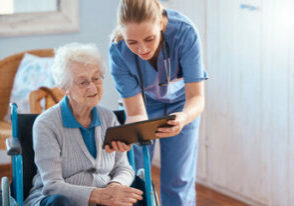Alcohol-Related Brain Damage (ARBD) Awareness Training
Understanding, Identifying, and Supporting Individuals with ARBD
Alcohol-Related Brain Damage (ARBD) is an often-overlooked condition that can have severe cognitive, physical, and emotional consequences. This specialist training course is designed for professionals working in social care, healthcare, housing, substance misuse, mental health, and family services, equipping them with the knowledge and practical skills to support individuals affected by ARBD.
Participants will explore the causes, symptoms, and progression of ARBD, including Fetal Alcohol Syndrome (FAS), Wernicke’s Encephalopathy, and Alcohol-Related Dementia. The course also covers prevention strategies, rehabilitation, and long-term care planning to improve outcomes for individuals and their caregivers.
What You Will Learn
–What is Alcohol-Related Brain Damage (ARBD)? – Define ARBD, its prevalence, and its impact on individuals and society.
–Key Risk Factors & Prevention – Identify the lifestyle, genetic, and environmental factors that contribute to ARBD development and explore strategies for harm reduction and early intervention.
–Recognising Symptoms & Diagnosis – Learn to identify the early warning signs of ARBD, including cognitive decline, memory loss, confusion, personality changes, and coordination issues.
–Understanding Wernicke’s Encephalopathy & Korsakoff’s Syndrome – Explore how thiamine deficiency leads to these life-threatening conditions and how early intervention can prevent long-term damage.
–Stages of Rehabilitation & Recovery – Discover the four stages of recovery and effective approaches to care, including structured routines, cognitive therapy, and nutritional support.
–Person-Centred Care & Practical Support – Apply proven techniques to support individuals in daily life, memory management, and long-term rehabilitation.
–Guidance for Carers & Families – Learn how to provide advice, emotional support, and signposting to specialist ARBD services and resources.
Who Should Attend?
This course is ideal for health and social care professionals, addiction support workers, housing and mental health teams, and family service providers working with individuals affected by ARBD.
Why Choose This Course?
- Gain a comprehensive understanding of ARBD and related conditions.
- Develop practical skills to support individuals in care settings or the community.
- Learn evidence-based strategies for prevention, intervention, and rehabilitation.
Course Availability: Available as an in-house training session or an open course at selected locations.
Group Booking Enquiry
Other Courses Available









